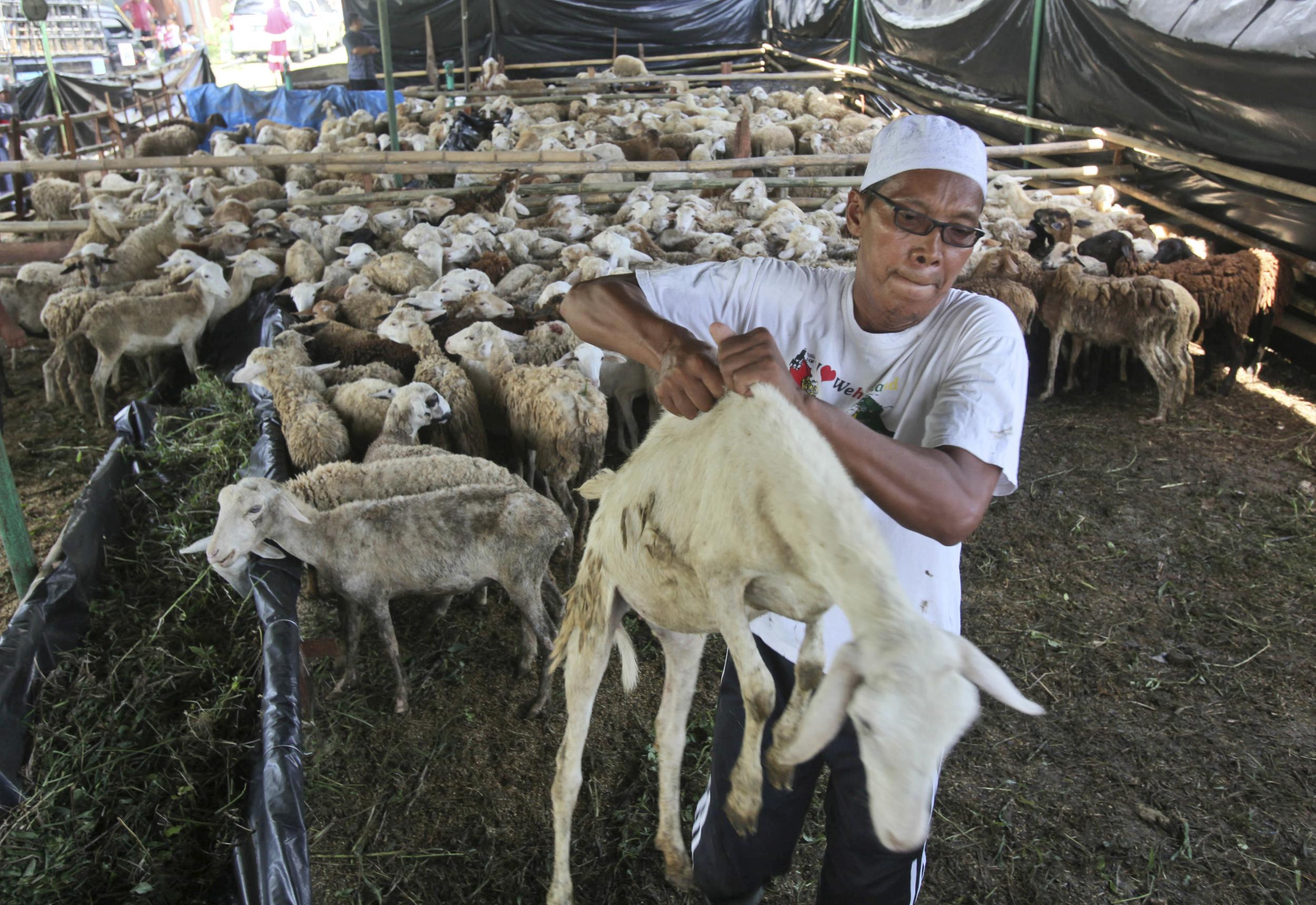Why Indonesia slaughtered more than 600,000 animals in one day
The cost of cows and goats rose 30 per cent in the run up to celebration of Eid

More than 600,000 animals have been slaughtered in Indonesia to celebrate the important Islamic holiday of Eid al-Adha.
Hundreds of thousands of goats, cows, sheep and buffalo were butchered for the festival, which celebrates the prophet Abraham offering to sacrifice his son to God.
Due to a slump in the economy, poorer families have been forced to band together to buy a single cow to slaughter.
Muhammad Zamroni, from Jakarta, told Anadalou Agency: "It's too tough for me to buy a cow myself, so with six neighbours we collected some money."
Mr Zamroni said he and his neighbours spent 19 million rupiah (£1,085) on their cow.
The Indonesian Ministry of Agriculture deployed 1,600 people across the greater Jakarta area to help supervise the slaughtering rituals at 9,000 different sites, the Wall Street Journal reports.
The cost of cows and goats has risen 30 per cent in the run up to the holiday. Prices for livestock has risen higher in previous years, such as 35 per cent in 2014.
Ministry officials have tried to keep the cost of livestock down by advising farmers on boosting production and enabling online markets which can match sellers and buyers more efficiently.
The agriculture ministry’s coordinator for the sacrifices, Boethdy Angkhasa, said:"Beef is still considered quite a luxury here, the government wants to push down prices so it’s more accessible."
Join our commenting forum
Join thought-provoking conversations, follow other Independent readers and see their replies
0Comments